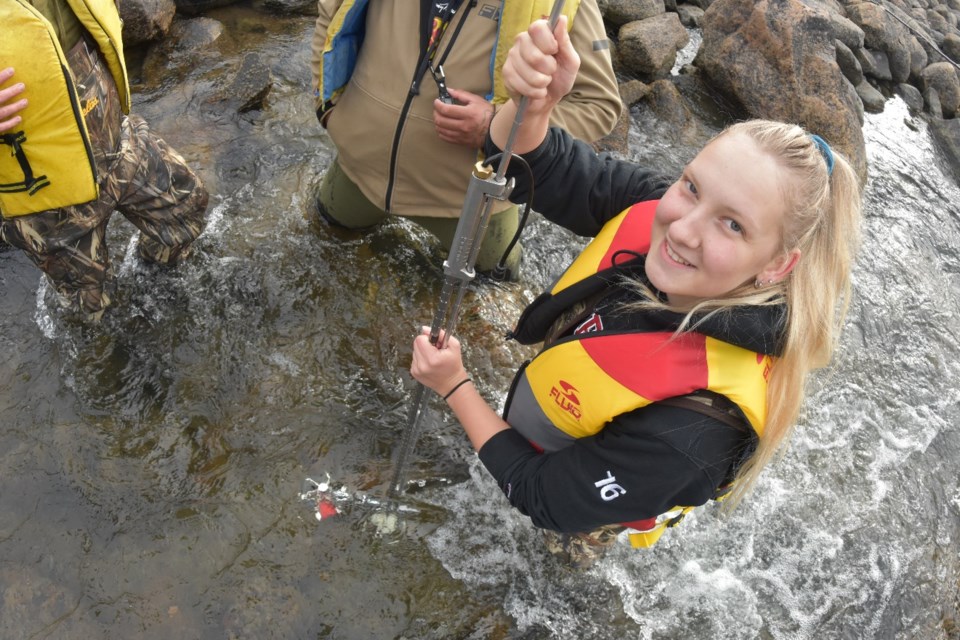In conjunction with November being Career and Workforce Development Month, University College of the North’s Industry Engagement Night provided an excellent opportunity for students and faculty to connect with local employers and industry representatives. Delegates, too, were provided the opportunity to promote their larger industry, sharing career prospects and personal insight. The event’s primary purpose, however, was to strategically target student self-promotion and expand their comfort with asking questions. According to Krystle Paskaruk, UCN co-ordinator of work-integrated learning, “Many of our students have limited work experience and aren’t sure where to start when it comes to the job search process.”
UCN’s Industry Engagement Night presented an opportunity to reach students in new ways and to adapt at an accelerated pace (particularly following COVID) to concerns forwarded by faculty, employers and Manitoba’s Education Commission, who are reflecting a sense of urgency in improving student achievement. Specifically, Manitoba’s commission recommendations include relevant curriculum, rigorous student assessment, and issues of equity, including “more girls in science.”
Parallel with the Council of Ministers of Education, Canada, the Programme for International Student Assessment unfortunately revealed Manitoba students had precipitously dropped 38 points in science (in two decades), placing the province last in the country. Noting a decline of 30 points is equivalent to a full year of formal education, Manitoba has the greatest percentage of secondary students performing below Level 2 (the baseline level required to participate fully in modern society). Unsuitably, Manitoba now has the lowest level of post-secondary education attainment in Canada for the 25 to 44 age group. PISA findings also indicate Canadian students in these “lower quartiles” are less likely to complete a year of post-secondary education. (In contrast, students in higher PISA levels are 20 times more likely to go to university.) Desperately needed are “employer-informed” strategies that pilot new initiatives – exactly what UCN’s industry evening was about.
Emerging from provincial-wide workshops is the fact Manitoba’s Commissioners see “the environment” as a “key theme.” More than ever, careers in resource-related disciplines require skills blended with an understanding of environmental sustainability. New andragogical (i.e. adult learning) approaches must therefore be visionary and geared towards higher-order thinking and interpersonal competencies, balancing foundational knowledge, while keeping pace with globalization. For these reasons, UCN’s NRMT programs method utilizes conservation projects to teach the knowledge, skills and disposition.
Accordingly, exponential advances working “with and alongside” local industry agents (i.e., conservation and environmental officers) helps to create solid foundations in learning trajectories ensuring students learn in a world where information and misinformation can be difficult to discern. According to Ramsey Cook (Ducks Unlimited technician and UCN NRMT program graduate), “student recipients must become literate on varying levels, with an adaptability to apply their knowledge in different contexts. UCN professors and regional representatives must provide learners the adaptability to navigate, adopt, interpret and build upon prior knowledge. Simply, there is a need to engage students repetitively in the learning process if they are to be motivated to succeed”.
Leveraging such expertise, the UCN NRMT program, and disciplinary-related employer organizations, are working together to create seamless paths to workplace and university expanding vital Science, Technology, Engineering and Mathematics (STEAM) skillsets – notably with women, proven successful through programs like Women in Trades.
The rationale is simple. Sustainability challenges related to monitoring freshwater and wildlife in all segments of Manitoba centre on place-based awareness and technical aptitude. Repeatedly, these challenges are uncelebrated where students (and particularly women) struggle to participate in programs due to gaps in underlying credit and experience required to participate in scientific findings, rather than contribute their generations’ geocultural nuance and abilities to help produce essential and ethical data.
Dr. Jeffray Stepaniuk of the NRMT program believes UCN’s program is aligned with Manitoba’s priorities, values and realities. Disrupting beliefs about who is mathematically capable, our place-responsive “project-based” outdoor learning activities and industry partnerships are making every effort to strive for what is acceptable as “only a small proportion of Manitoba’s population (less than 1.5 per cent) is watchfully examining wildlife and freshwater-related topics.”
Industry partnerships are critical to these foundational developments. As outcomes in rural settings fall behind those celebrated in urban locations, UCN is doing everything it can to address disparities in collaboration and the lack of women in science. In line with Manitoba’s Education Commission recommendations number 49 and 58, there is a special and local interest regarding “the lack of girls moving on into STEAM”-related employment … but the stellar role models in UCN’s NRMT program are solid proof of more “northern girls in science!”
Dr. Jeffray Stepaniuk is an instructor in University College of the North’s Natural Resources Management Technology program in The Pas.



